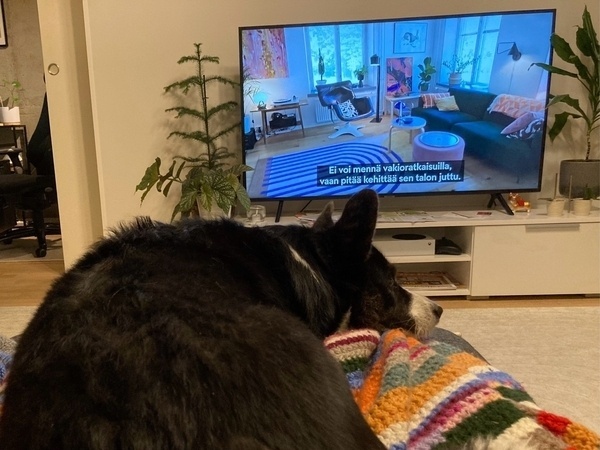There are many reasons not to take advice.
Period.
Life is incomprehensibly contextual. Still all of us find ourselves reaching for advice from time to time. It is important in those moments to recognize who you’re taking advice from.
Why is this important: Because advice is never only advice. Listening and following or even considering advice can be a way to lend credibility and power. It allows bad people to use that gained credibility to maybe say or do some other stuff with more authority than they are due otherwise.
I see this sometimes in programming circles, where blowhards and hustle culture type people’s opinions are shared and sometimes praised for telling truth to power. I say: resist the urge to engage with their arguments! Especially publicly. Seek kinder people. Seek people that have an interest in being more than just - to stay with the example - a 10x programmer who tells it like it is and doesn’t give a shit about your softie feelings. Most principles of being a good worker or a good person or a person you want to be - or however you want to phrase this - are not available only through a funnel of selfish individualist assholes.
Sometimes considering advice from bad people is unavoidable, because you are forced to see it. Resist the urge to engage with it. I speak from experience when I say that even a negative opinion expressed about what was shared - say in a thread in the work chat - will give credence to more than just the plain advice you’re (seemingly) discussing. Try to share advice from good people instead.
Now, there are at least two more things to consider here:
- What even is a bad person?
- Why not try to understand their points and meet in the middle?
Being a bad person is a relative term. I’m sure I am and have been a bad person in other people’s eyes and so - likely - have you. I think it is also a term used to label people with bad values. What are bad values though? Again, it’s somewhat relative. Or rather: It’s a question of priority. For example: Do I value safety over opportunity? Do I value individual expression over piety? There are many values and possible orders (and stabilities of those orders, from unchanging to ethical situationalism). The whole of socially accepted values within a group are what we call morality. Accordingly, you can be more or less moral relative to the current status quo in a social group and its approach to values or what is deemed good and bad.
All this is to say that as an active participant in the world you want to be a part of, that is, the imagined or real community of people you share values with, it is imperative to reflect those morals actively. Because every day you will be confronted with people and acts that need to be evaluated. Some will not pass muster. Others will make you reconsider, some will make you want to run away or start a fight.
So what is a bad person? Spoken from this “position from nowhere”: it is a person who actively threatens the morality of the group(s) you’re socially - by choice or not - belong to. People who try to renew or further a groups moral makeup have creds to do so. Bad actors just try to shake things up.
But spoken from my actual position, instead of a theoretical non-position: It is a person who puts self interest over everything, individualism and personal gain, over the betterment of all, a person who actively fights the institutions of social democracy, a person who shits on worker’s rights, a person who denies queer people or those of color their right to exist. But also people who, on a much smaller scale, think that kindness and empathy is for dumb softies. I say: Do not listen to these kinds of people even if their advice seems plausible. It comes from a bad place.
The second question, about why not to meet in the middle and have calm discussions with bad people, is easier to answer: There simply is no need. The world of ideas is what should be discussed, not opinions. If you talk about other people they should be interested in positive change (i.e. make the world more aligned with what is good) and the discussion should be about empowerment and enablement. Only on the surface is it ever interesting to dissect a bad person’s opinion and sift through the shit to find a couple of pieces of gold. Engaging in this kind of behavior is not good use of time.
There is plenty of good advice going around about the big things so here is my small piece: If you’re going to be on social media in the next weeks and months and years, block and mute freely rather than getting into spats and squabbles. Preserve your energy for the work. Keep your powder dry.
—@kissane
](https://cdn.uploads.micro.blog/44388/2024/464102b56d.png)














